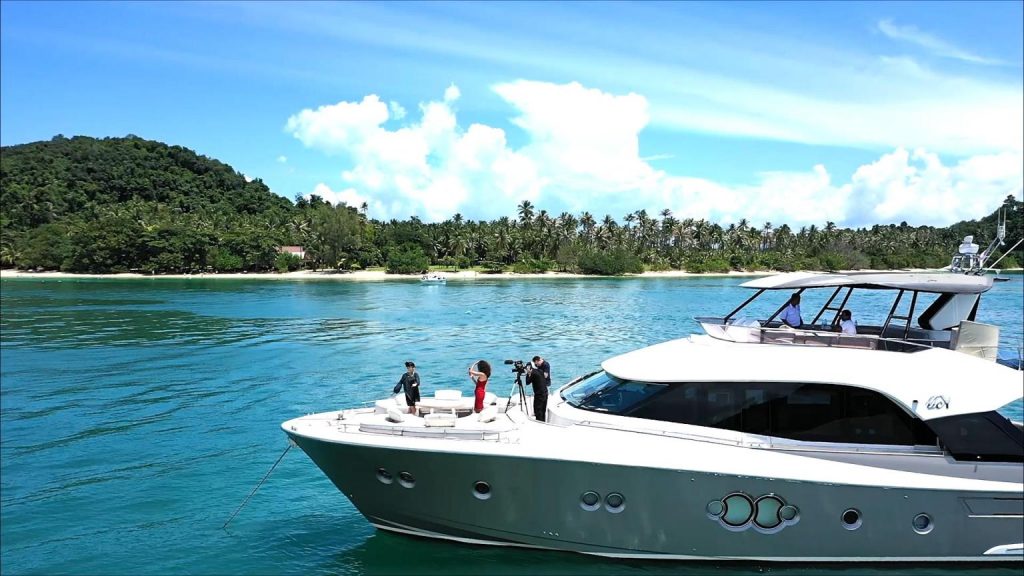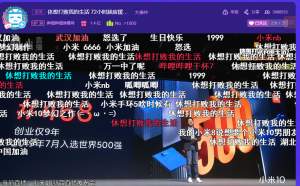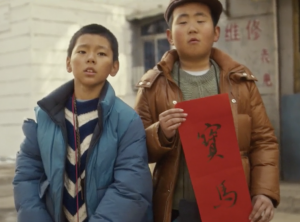
All aboard with Sarah Zhang on “Yacht Life: Love the Ocean”
Despite China’s huge increases in luxury consumption over the past twenty years, one clearly lagging sector has been its yachting industry. High-end boating has long been popular among the ultra-wealthy in Europe and the Americas, and while China has seen a rapid rise in other forms of luxury transportation such as private jets and fancy cars, yachting hasn’t yet caught on among the country’s rich. Chinese billionaires make up a growing proportion of the world’s total, but just three of the 200 biggest yachts are known to have Chinese owners, and only an estimated 0.3 percent of the country’s wealthiest individuals own yachts.
The lack of Chinese interest in yachts as status symbol has been somewhat puzzling to industry insiders, especially given the central government’s efforts to encourage private maritime activity, but cultural factors are thought to play a major role. Though China boasts natural advantages with its expansive coastlines and copious waterways, boating still carries strong associations with manual labor and exposure to the sun (which Chinese seek to limit), and most sports-related leisure activities are still in the early stages of development. Few in China are familiar with the culture of using boats to for independent touring, yachts are more likely to be seen as a somewhat stationary venue for parties or business-related gatherings. Additionally, yacht clubs remain relatively rare in China, which poses another challenge to the industry’s development, since clubs typically offer a gateway into ownership by hosting events and providing education and other services to prospective buyers.
The downbeat outlook could be set to change, as recent surveys note that about half of China’s high-net-worth individuals would consider yacht ownership, and 16 percent say they plan to purchase a private vessel, which should be welcome news to yacht manufacturers who face slowing growth in more developed markets around the rest of the world.
Educating potential consumers about the lifestyle of yachting is the objective of a new documentary series developed by House Films, a Shanghai-based branded content production company. “Yacht Life: Love the Ocean” is hosted by luxury lifestyle influencer Sarah Zhang, who is also a partner and producer with House Films, which was founded by Ric DiIanni in 1989. Zhang’s previous credits include adventure travel series “Quest USA,” sequel “Quest China,” and broad range of more recent programming, primarily on leisure-related themes such as fitness, wine and fine dining.
We caught up with Zhang to discuss the trajectory of her work on branded content in China and House Films’ latest offering, “Yacht Life: Love the Ocean.” Below is an edited transcript of the conversation.
CBI: How did you come to creating brand-oriented programming for Chinese audiences?
Sarah Zhang: House Films was originally based in New York City and initially produced TV commercials for the Asian market. But more than a decade ago, we already wanted to produce entertainment shows, so we created the first reality travel show to be filmed in the U.S. for Chinese audiences, “Quest USA,” that took us from Boston to Miami. We built relationships with sponsors from that experience and decided to produce the second season in China, and while scouting locations we saw many opportunities and decided to move to Shanghai. That was about nine years ago, before mobile video really existed and there was not much digital and online media, so the show aired on local TV stations, taxi screens, in subway stations.
From there we moved into wine content with “Connoisseur,” the first wine entertainment series, which was sponsored by wine distributor ASC for the first season. As “Connoisseur” became one of the most popular wine shows in China, viewers started asking about food as well, so we decided to combine the two. We knew the chef David Laris and contacted him about producing a cooking show. The result was “Dining With David and Sarah,” with him teaching how to cook Western food.
These shows have an educational aspect, but at the same time they are very entertaining, and promote a relaxing atmosphere, with discussions that are like two friends chatting. Audiences have picked up on that and find it very enjoyable to watch the shows, which makes them stand out. There is a lot of video content in China nowadays, but I think a lot of it is too serious, and that’s not our approach. We always try to add entertainment elements because people are so busy making money and working, dealing with stress, so we want people to relax and enjoy video, spreading the lifestyle and culture around drinking wine and enjoying food.
Ric had the idea for a yachting lifestyle show idea, and we jumped onto that. We really want to focus on how to educate consumers about yacht culture and share the lifestyle through food and fashion as well. Our goal is to create an image and atmosphere of luxury and freedom: Enjoying fresh air, the ocean, and blue skies to make people feel like they want to be there.
CBI: What is the target audience for “Yacht Life”?
Zhang: We had many years of food and wine programming experience and over that time we have organically accumulated a large following of fans who follow us on Wechat. I would say 80 percent of audience are upscale consumers: they are college educated, have travelled overseas, and speak or understand English, as much of our content is in English.
For “Yacht Life,” because it’s much more than food and wine, we are targeting very high-net-worth consumers, so it’s going to be a little more niche.
CBI: How do you find brands to partner with?
Zhang: Sometimes they approach us, because we have a profile. Most every week I have a brand from outside China contact me to either promote wine or find distribution for wine, thanks to the “Connoisseur” series. And sometimes we approach brands, for example with a concept such as “Yacht Life,” we approached the brands that fit into the category of the show.
CBI: What was your approach to brand integration on the series?
Zhang: We have long used content marketing, with branded products embedded our shows, but very naturally. On our previous shows, audiences would learn about cooking and wine at the same time that products gained exposure, and afterwards viewers would ask about how they can buy a certain wine or cheese. So we created a desire for the product, by making the brands a part of the story, and haven’t had any complaints about the shows being too commercial.
On “Yacht Life,” for example, We have a sponsor called Odeep, which produces mineral-rich, deep ocean water extracted from 300 meters below the surface, and that product, with its blue packaging, fits the show almost perfectly. In addition, to drinking Odeep water during episodes, we had 15-second pre-roll spots, and I drank Odeep constantly during shooting and took photos with the product that I posted on social media. We also have offline promotion through the afternoon tea events I host in Shanghai, where Odeep water was given as gifts to the attendees.
We also worked with the Swiss watch brand Oris. They provided a dive watche which I wore during an episode with David Martin, founder of NGO Oceans for All, who is also a professional diver. We spoke about environmental issues and ocean conservation, which is an issue that Oris puts a lot of effort into as well, for example through beach clean-up events around Shanghai.
Our conservation theme also ties into our host location, the Royal Phuket Marina, which has won awards for being the cleanest marina in Asia, and the chairman loaned us his personal yacht for the production. We also stayed at the Royal Phuket Marina and dined at their restaurants, so they were all featured very naturally and enabled our discussions about how to buy a yacht and find a marina.
We also seek to do much more outside video. We are in discussions with Royal Phuket Marina about partnering on events, and Oris is also planning events for next year. Odeep is still a new product in China so they are seeking to raise their profile and brand awareness in China, with a bigger campaign planned for next year to roll out more products. We’d also like to work with Oceans for All to promote their cause in China.
CBI: What is your distribution plan for “Yacht Life” across Chinese media?
Zhang: Nowadays, video is all about online video, and traditional television isn’t watched as much.
We distribute the content through around ten video sites, including all of the major ones (iQiyi, Youku, Tencent, and Sohu) and some smaller ones. We share the content on Weibo and through mobile apps such as CCTV’s short-video app that just launched, and I’m sure there will be more new platforms coming up. We use social media to promote the links and promote the videos through channels such as Weibo, Toutiao, and LinkedIn, and we’ve just set up YouTube channel and our working on creating an Instagram account.
CBI: How do platforms help to promote the content?
Zhang: Sometimes the video-streaming services will promote it. We haven’t approached them yet, because if they feel it is interesting they will charge for promotion, but some newer platforms like CCTV’s are trying to build their audiences by promoting content producers. Another one called Oasis is helping to develop me as a KOL by introducing my content to other fan groups.
CBI: How is “Yacht Life” marketed via social media?
Zhang: Nowadays everything is digital: social media marketing, video marketing, content marketing, all of these are combined. Social media marketing and promotion of a show is an ongoing process, it’s not just a few days. We use a variety of photos, screen captures of videos, and production stills to keep it fresh and also post 15-second clips from the show. Fans also help to promote by forwarding or sharing the content.





